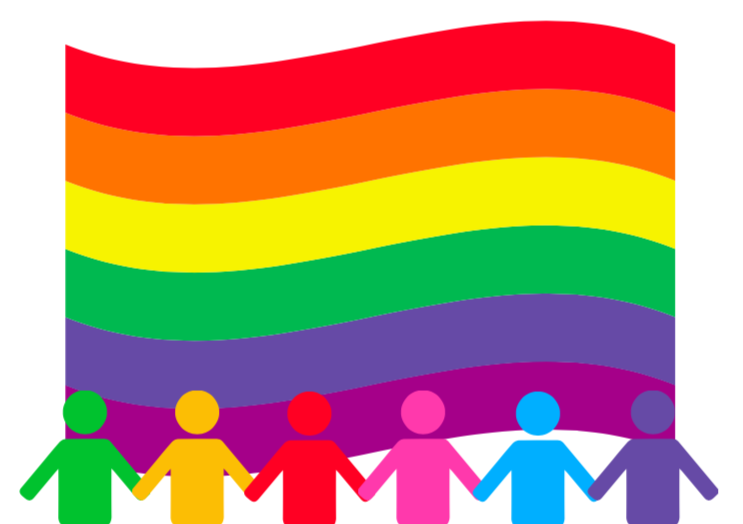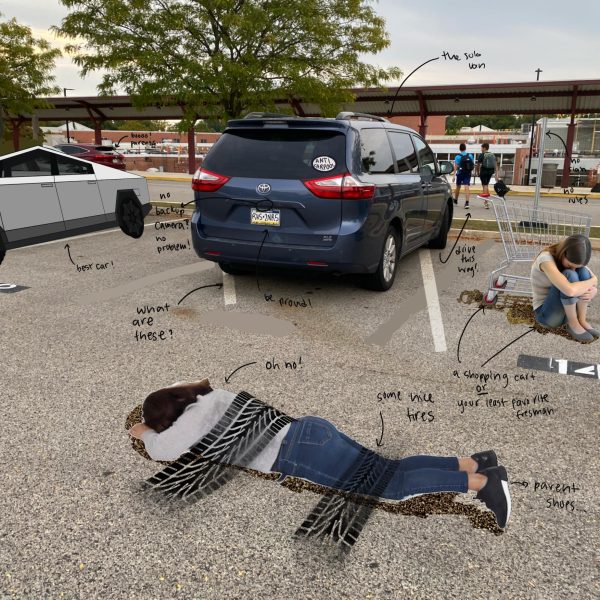National Coming Out Day: A Celebration of Community
October 9, 2020
This Sunday, October 11, marks the observance of National Coming Out Day, when LGBTQ people across the country pause to remember the somber history of the community and celebrate the significance of personal identity. It’s a time to reflect upon how personally meaningful it can be to step more fully into authenticity and acknowledge the cultural and political importance of this brave act.
National Coming Out Day, founded on October 11, 1988, honors a march for queer rights that occurred the year prior. Colloquially known as the “Great March,” the event was a cry that led to advancements in LGBTQ rights. To many demonstrators the event felt particularly reminiscent of the 1963 Civil Rights March on Washington. It was an era of excess and enlightenment growing under the homogeneity of Reagan’s America. With rampant socio-economic change and new technology came the genesis of myriad movements, from Modernism to MTV.
Even with all of the innovation of a new age, the decade leading up to the march was arduous for the LGBTQ community. Most notably, the AIDS epidemic was decimating the Gay community, with conscious neglect from the Reagan Administration. Then called “Gay-related immune deficiency” or GRID, AIDS claimed thousands of lives, coast to coast, gay and straight.
On October 11 1987, a year before the founding of National Coming Out Day, 200,000 people, LGBTQ and allies alike, marched down Pennsylvania Avenue, calling for more Federal money for AIDS research and treatment and for an end to discrimination on the basis of sexuality. Featuring the likes of Whoopie Goldberg, Caesar Chavez, and Nancy Pelosi, the protesters marched from the White House to the Supreme Court Building.
The “Great March” demonstrated the solidarity of the community during a harrowing time for LGBTQ rights. Once organized, they showed the country that it was okay to be gay. Though the March on Washington didn’t start the gay liberation movement, it was a vitalizing force for LGBTQ political activism. It demonstrated the solidarity of the community to advance civil liberty and profoundly impacted LGBTQ communities and individuals around the country.
A year after this historic event, Jean O’Leary and Robert Eichberg—two leaders of the movement—founded National Coming Out Day to help normalize LGBTQ identities in mainstream media and facilitate the journey out of the closet. Both products of difficult circumstances, their journeys prove that self-discovery and acceptance are possible for everyone still in the closet.
O’Leary, founder of the Lesbian Feminist Liberation, a first of its kind, was an outspoken lesbian and gay rights activist. Before she came out, O’Leary was a Roman Catholic nun. Faced with the turmoil of hiding her identity, she left the convent and became openly lesbian. With this act of self-acceptance, she found a place for herself in the world of public service. She led a life of activism—filled with marches, parades, and campaigns—until her untimely death in 2005.
While less bold than O’Leary, Eichberg, a psychologist, still made significant contributions to the LGBTQ community. Besides co-founding National Coming Out Day, he published a book in 1990 titled Coming Out: An Act of Love, which provided a guide for closeted gays and lesbians who wanted to express themselves more fully. He died of AIDS complications in 1995—a victim of the AIDs pandemic like many others. But his and O’Leary’s contributions to queer rights will always be seen in the celebration of National Coming Out Day.
The contributions of fallen heroes of the LGBTQ community will forever ring in the halls of history. Today, we can honor their contributions by simply being kind and accepting people. No nuance to it—O’Leary and Eichenberg lived their lives in full technicolor so that every American would have the right to love. Even here in Radnor, there is still so much to do to fulfill their legacies.
Without a doubt, you know a gay person. You may not know you know a gay person, in fact, you may even be the gay person in question. According to the Human Rights Campaign, half of all Americans can identify someone close to them as LGBTQ identifying. It could be your best friend, your brother, or even you.
The point here isn’t to go on a witch hunt. Everyone comes out at their own pace, whether it’s at five or fifty. But life is scary on both sides of the closet. According to an annual NCOD study from the Human Rights Campaign, thirty-one percent of closeted students fear coming out at school for fear of judgement and social isolation, and nine percent of students say they fear bullying and ostracism. One student states: “I would feel threatened by students and teachers. My school addresses bullying a lot but never LGBTQ bullying.” Even forty years after the March on Washington, life is still scary for many LGBTQ teens. There is a culture of homophobia deeply imbued into the fabric of our society—it can be heard in locker rooms and cafeteria alike. And in order to change this culture, we as a school must be open and accepting of all identities.
Even if you don’t know someone as LGBTQ+ identifying, it is still important to foster a community of care and acceptance for all people, no matter how they identify. National Coming Out Day was founded to commemorate and celebrate the struggles of all LGBTQ people, out or not. Celebrate National Coming Out Day on October 11 this year by simply being kind. And in that act of celebration, you will be making the world a better place for LGBTQ people all around.
Radnor’s chapter of SAGA, or Sexuality and Gender Alliance, is a safe space for people of all identities, gay or not.







